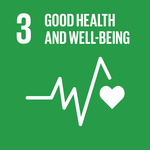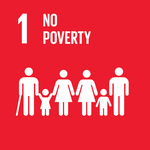2019:Health/Experimental distribution of offline WikiMed in Sub-Saharan Senegal
| This is an Accepted submission for the Health space at Wikimania 2019. |
Description
[edit | edit source]
While remaining the whole time in Geneva (Switzerland), I organized this experimental distribution of offline WikiMed as a trial run for a much larger rapid grant project I applied for in December 2018. I also wanted to try piloting from a distance a project being run in an area with essentially no internet or cell phone coverage. The rapid grant project was not funded by the WMF, but the experimental distribution had already been done in November and I want to share with you some of the challenges we faced during the trial run and some of the results.
Internet-in-a-Box (iiab) is a small device built on a Raspberry Pi Zero, which creates a Wi-Fi hotspot that offers access to a downloaded version of Wikipedia without any connection to the internet itself. The software needed to run the hotspot and the downloaded resources are all on a SD card, all that is missing in the photo to the right is a power pack.

I chose to run the trial distribution in and around the village of Ouala, and a young Senegalese contributor, Mamadou Diop, was doing the presentations at the health centers. Ouala is a small Peul fishing village on the banks of the Senegal river, on the border between Senegal and Mauritania. This village was chosen because it is Mamadou village's, and he was lodged with his relatives. The area around his village has very poor internet connections, and the data plans are expensive. Mamadou Diop visited a few Postes de Santé (medical centers) and a hospital in the area surrounding his home village.
The project plan called for a second visit by Mamadou after a month or two. The weeks between his two visits would enable a more complete evaluation by the medical personnel, and the medical centers would then decide to purchase the devices or to give them back to Mamadou. In the end, I decided to forestall the second trip and leave the devices in the medical centers against a promise of a report. I am now still trying to get a detailed report from them on the usefulness of these devices.
Wikimedia projects in general are very decentralized, and globally they are run by thousands of volunteers. I remain convinced that this type of grass-root distribution works and that it is cost-effective, and the discussion period at the end of the presentation will allow participants to share their own experiences and convictions.
Relationship to the theme
[edit | edit source]This session will address the conference theme — Wikimedia, Free Knowledge and the Sustainable Development Goals — in the following manner:
- Primary Goals
-
Goal 3: Health
-
Goal 10: Inequailities
-
Goal 1: Poverty
- N° 3: Good Health and Well-being
Doctors and medical personnel all over the World use Wikipedia as one of their first sources of medical information. That works fine in our connected countries, and offline WikiMed makes it possible for medical personnel to access this same information in areas where there is no internet access. - N° 10: Reduced Inequalities
Medical personnel working in remote areas cannot provide the same quality of health care as what is found in larger developed urban areas. Access to information is one of the factors that explain these disparities. - N° 1: End poverty
Access to medical information will help improve the health care provided by clinics and practitioners located in areas with no internet access. Theses areas are often low income areas and admittance to health care facilities with access to modern medical knowledge is beyond the population's financial capacity.
- Secondary Goals
-
Goal 4: Education
-
Goal 17:Partnerships
- N° 4: Quality Education
The internet-in-a-box used by the offline WikiMed Project also provides access the the full Wikipedia encyclopedia, as well as other web resources which have been downloaded. This major increase in the availability of quality information will improve the education given to students and medical personnel. - N° 17: Partnerships for the Goals
This offline WikiMed project provides access to very large corpus of knowledge. The knowledge itself is free, what costs is accessing this knowledge, especially if one is in an area with no internet. The hardware exists, the internet-in-a-box devices or large capacity USB flash drives are not expensive for us, but in large parts of the World, $30 or $50 is a lot of money. For the project to work on a large scale, we need to recruit donors and set up a financial partnership.
Session outcomes
[edit | edit source]At the end of the session, the following will have been achieved:
- Attendees will learn about off-line Wikipedia, internet-in-a-box and WikiMed.
- Attendees will have learn about this project which can easily be replicated, what worked and what did not work as expected.
- The discussions will help refine this grass-root method of distributing offline Wikipedia.
Session leader(s)
[edit | edit source]- GastelEtzwane (talk) | Meta page: GastelEtzwane | IRL: Gabriel Thullen
Session type
[edit | edit source]Each Space at Wikimania 2019 will have specific format requests. The program design prioritises submissions which are future-oriented and directly engage the audience. The format of this submission is a:
- Lecture with discussion / Question & Answer session
Requirements
[edit | edit source]The session will work best with these conditions:
- Room:
a small classroom with a projector + screen
- Audience:
up to 25 / 30
- Recording:
recording is fine






